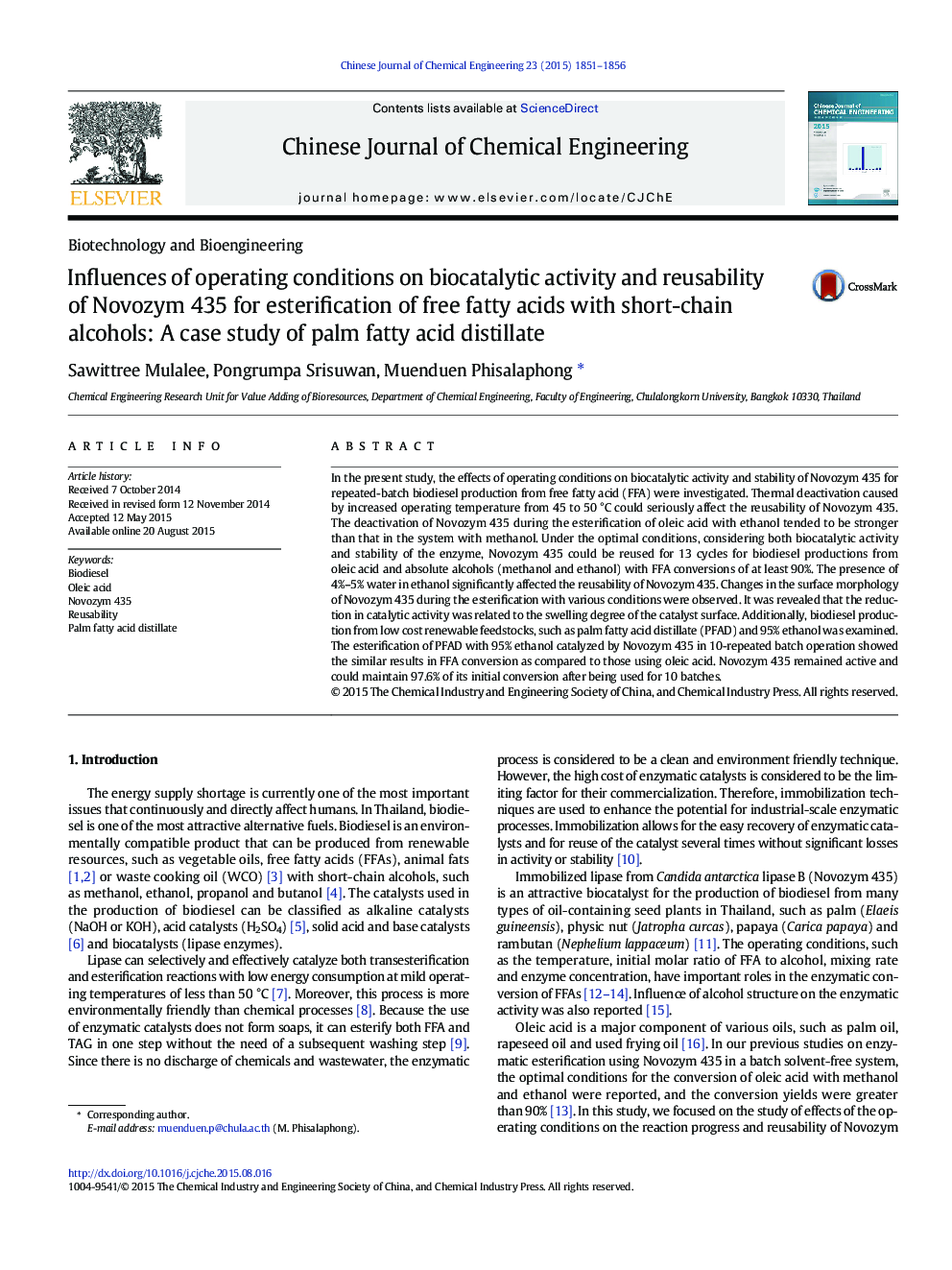| Article ID | Journal | Published Year | Pages | File Type |
|---|---|---|---|---|
| 167963 | Chinese Journal of Chemical Engineering | 2015 | 6 Pages |
In the present study, the effects of operating conditions on biocatalytic activity and stability of Novozym 435 for repeated-batch biodiesel production from free fatty acid (FFA) were investigated. Thermal deactivation caused by increased operating temperature from 45 to 50 °C could seriously affect the reusability of Novozym 435. The deactivation of Novozym 435 during the esterification of oleic acid with ethanol tended to be stronger than that in the system with methanol. Under the optimal conditions, considering both biocatalytic activity and stability of the enzyme, Novozym 435 could be reused for 13 cycles for biodiesel productions from oleic acid and absolute alcohols (methanol and ethanol) with FFA conversions of at least 90%. The presence of 4%–5% water in ethanol significantly affected the reusability of Novozym 435. Changes in the surface morphology of Novozym 435 during the esterification with various conditions were observed. It was revealed that the reduction in catalytic activity was related to the swelling degree of the catalyst surface. Additionally, biodiesel production from low cost renewable feedstocks, such as palm fatty acid distillate (PFAD) and 95% ethanol was examined. The esterification of PFAD with 95% ethanol catalyzed by Novozym 435 in 10-repeated batch operation showed the similar results in FFA conversion as compared to those using oleic acid. Novozym 435 remained active and could maintain 97.6% of its initial conversion after being used for 10 batches.
Graphical abstractFigure optionsDownload full-size imageDownload as PowerPoint slide
